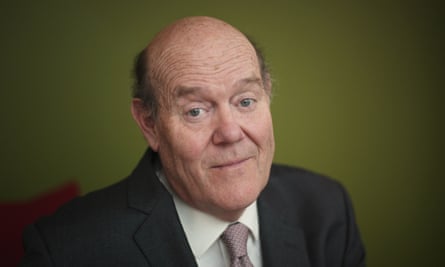The new president of the Confederation of British Industry has admitted the Guardian’s revelations of sexual misconduct were “an appalling shock” that tipped the lobbying group into a “near-death experience’’.
Rupert Soames, the City grandee recently appointed president of the CBI, said that this newspaper’s revelations about sexual misconduct at the organisation had triggered an existential crisis – one he is trying to rescue it from.
The lobby group has lost almost a third of its staff after an exodus of fee-paying members last April left it desperately short of funds. Companies including BMW, Jaguar Land Rover, Tesco Sainsbury’s and Aviva quit or suspended their membership in the wake of allegations which spanned harassment, drug taking, assault and rape of CBI staff by their own colleagues.
“It has had an appalling shock, a near-death experience,” Soames said, summing up the scandal which left the UK’s most prominent business lobby group fighting for survival.
“This has been a disaster for individuals. It has caused a lot of pain. It has seriously harmed what is an important institution in the UK.”
Soames, the former chief executive of outsourcing company Serco, was unable to rule out further redundancies at its central London head office: “I am diligently working really hard to persuade people to come back and come back fast because if they come back fast we can be bigger, stronger and wiser. If they come back slowly we’re going to have to make sure that our income and our expenditure meet each other.”
He is, however, convinced that there is still a place for the CBI, and that “Britain needs it” – citing the recent return of big four accountancy firm PwC as a member.
“There are some people who are really putting their shoulder to the wheel and saying we need this organisation. It’s the only one that can speak. Nobody else has stepped into the role and we’re in a bloody general election year,” he said.
Soames, a grandson of Sir Winston Churchill, who revived the prisons-to-defence outsourcing company Serco after its own near-death experience, said he was persuaded to take on the unpaid role to help revive the UK’s flagging economy.
“There’s got to be a national effort to focus on getting the UK economy into a state where it can compete and grow and help productivity, prosperity. I would love to have a walk-on part in that.”
Soames admitted there are uncertainties surrounding the CBI’s finances. “Your job is secure so long as we can get the revenue to pay for it. Full stop. If not we will have to cut our cloth,” he said. “There ain’t no particular secret about it.”
The CBI is currently surviving, in part, thanks to additional funding from a small clutch of members, including banks. Exploratory talks about a merger with manufacturing body MakeUK collapsed amid a dispute over pension liabilities.

After the Guardian’s investigation revealed the scale and breadth of concerns among present and former staff, the CBI hired law firm Fox Williams to carry out an investigation. It found evidence of a toxic culture, which had “terrible consequences” for which its then president, Brian McBride, publicly apologised.
Its then director general, Tony Danker, had already been dismissed by its board after unrelated complaints about his conduct revealed by the Guardian in March. The CBI settled with Danker for an undisclosed sum this week and reiterated that his departure was unrelated to the other allegations.
Soames said that businesses that think that they no longer need the CBI will also find that the next government will “campaign in poetry and govern in prose”, with detailed policy proposals likely to be unveiled only after the election.
Soames said bosses may find their access to politicians such as shadow chancellor Rachel Reeves limited if and when they enter government – making a unifying voice such as the CBI’s all the more important.
after newsletter promotion
“I would say to those CEOs: ‘I wouldn’t be surprised, were she to be in government, you’ll find her somewhat less available.”
Still, he said the CBI must avoid the “complacency” of its past, when it was “not very good at communicating what it did”.
“There is an opportunity here to rethink: what is the point?”
Members and returning members could also take comfort in the knowledge that managers are now better trained and highly committed at the body, he said, as part of its wider effort to reform in the wake of the misconduct scandal.
“Britain needs a CBI and that’s one of the reasons I came here, because we need a voice that speaks across business that I don’t think anybody else can completely do.”
Soames claimed the CBI can make a difference by ensuring that the UK reclaims a leading role in global business regulation and by modernising red tape.
This effort could help Britain manage what Soames said was a “Great Disruption”, following Brexit and Covid.
He said that since 2000 the UK has grown “relatively poor compared to nearly all of our competitors ... Life for most businesses has been hellish since 2016.”
“My personal belief is that the next five years are going to be really determinative about how the UK does probably for the next generation,” he said. “We’re not going to be able to outspend our competitors and peers, but we may be able to outsmart them.”
“Smart means a closer coordination between business and government.”